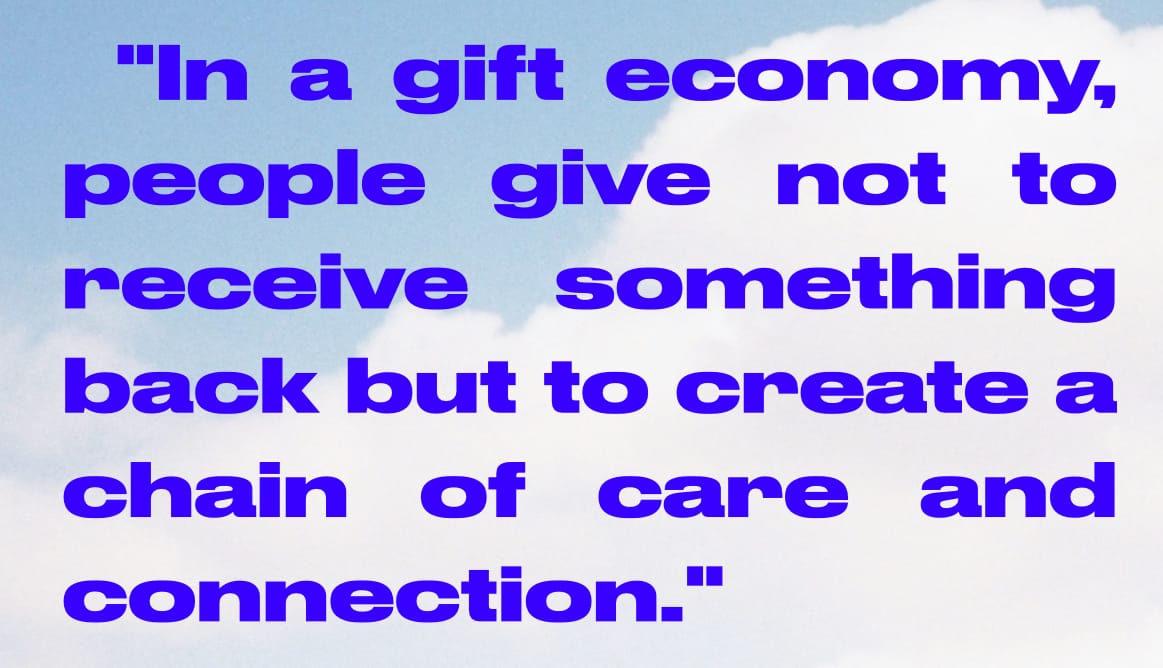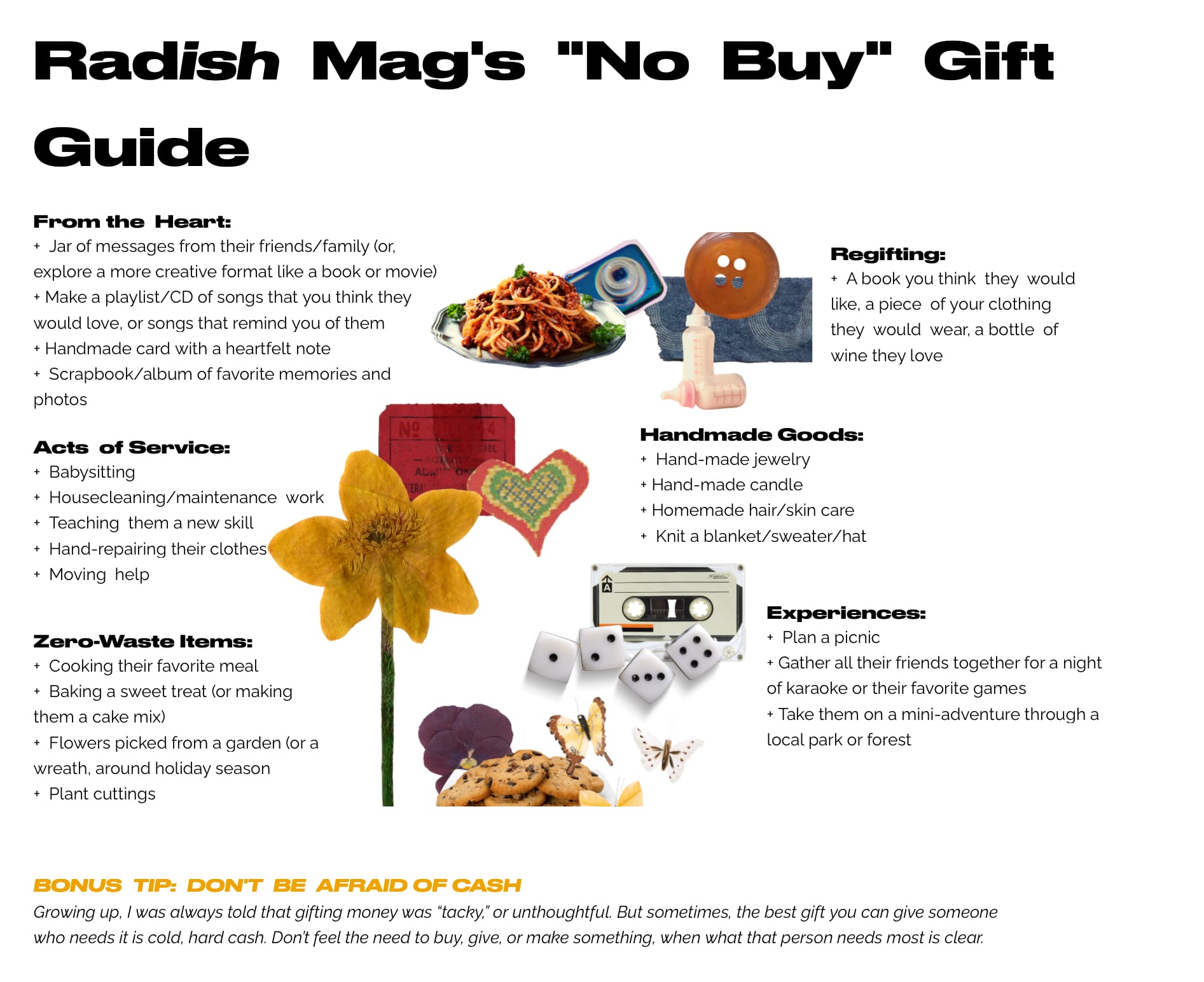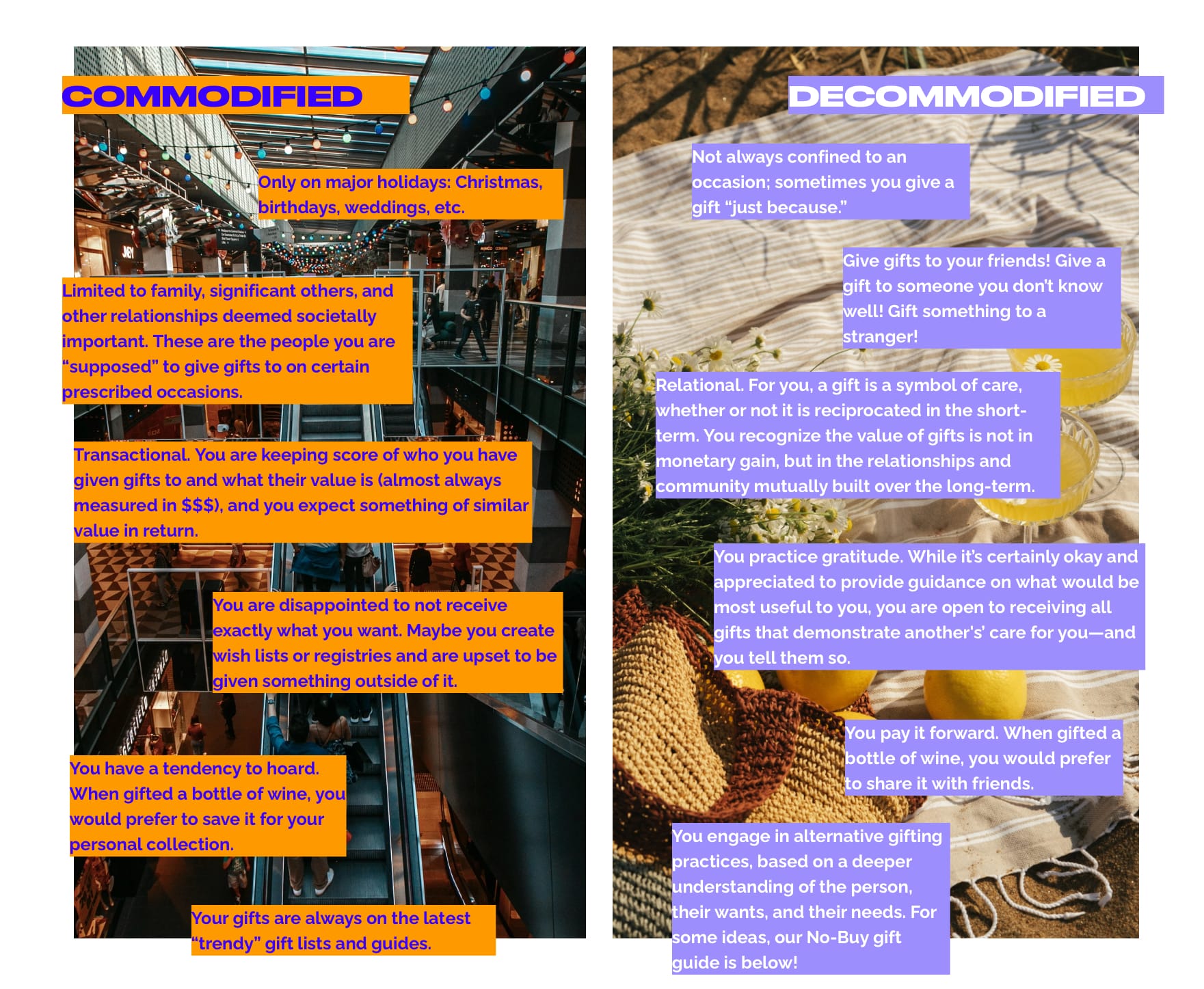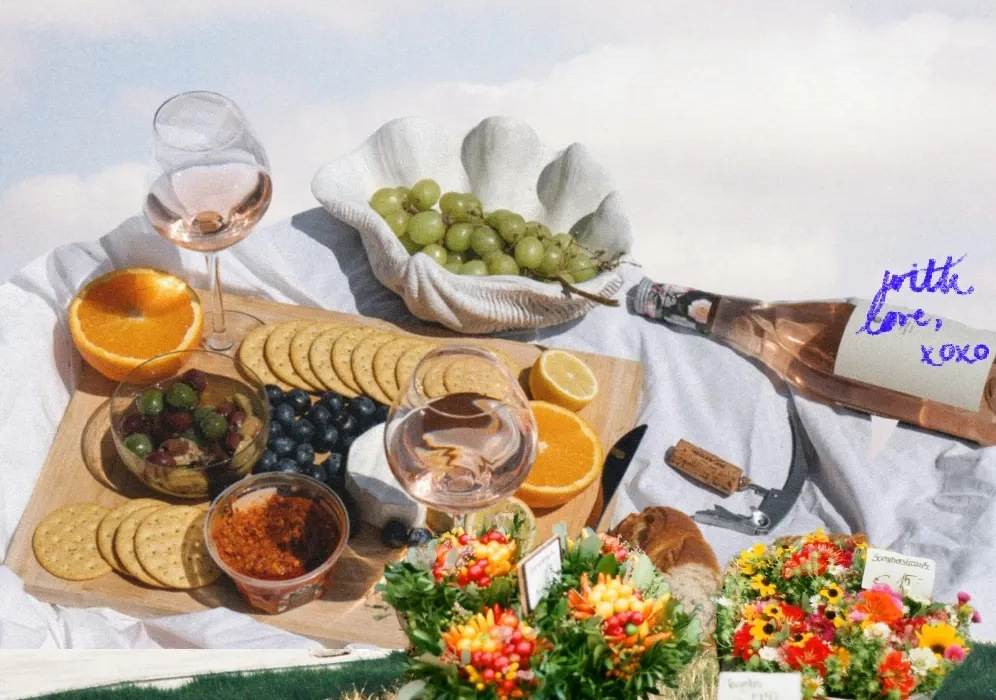The holiday season has once again officially come and gone (how are we already 3 months into 2025?!). For many, it's a time of year that brings with it the familiar pressure to find the “perfect” gift. While there’s certainly joy in giving, the reality is that the season’s gift-giving expectations are often stressful—and costly.
It’s not surprising that, under capitalism, gifting has become a source of anxiety, with large businesses reaping the benefits of our goodwill. Corporations use savvy marketing to create occasions for gift-giving, manufacturing traditions and expectations that society readily adopts. As a result, gifting often shifts from a heartfelt expression of care to a social obligation driven by external pressures.
But gifting doesn’t have to be this way. There is something beautifully intimate about wearing a sweater hand-knit by a friend, eating your favorite meal home-cooked by a relative, or wearing a family heirloom passed down to you through the generations. These items become not just commodities—clothing, food, accessories—but symbols of our interconnectedness and love.
Gifting can be a radical, transformative practice. At its core, gifting is about creating connections, expressing gratitude, and honoring relationships. Imagine a world where gifting operated outside of the norms and logics of buying and selling, one where our gifts weren’t tied to perceived financial value but instead to genuine exchanges of care, gratitude, and community. This is what reclaiming gifting can look like.

In capitalist society, our economy is transactional: you give, you get. There’s an unspoken rule that nothing is free and that every action has an equal or “market” exchange. This belief exists even in barter economies, where goods and services are exchanged not for money but for other goods and services of equivalent value.
But in a gift economy, goods and services circulate based not on explicit expectations of direct compensation but on principles of mutual care and indirect reciprocity. The underlying agreements in a gift economy are social and moral rather than financial. In this system, people give not to receive something back but to create a chain of care and connection that strengthens communal bonds.
Take mutual aid networks as an example of a gift economy. Unlike charity, which establishes a one-way flow of resources from the “more fortunate” to the “less fortunate,” mutual aid reflects an ecosystem of support where each member of a community is both a giver and a receiver in different capacities. It’s a circuitous, reciprocal exchange—one where people’s needs are met not through wealth or power but through communal care. Gifting in a true sense cultivates interdependence rather than reinforcing social hierarchies.
This radical concept of gifting also shows up in places we might not expect. Consider the practice of sharing open-source software, where creators offer their work to the world without expectation of payment. Here, the gift is a shared tool for learning, growth, and improvement—a contribution to the collective good.

In some Indigenous cultures, such as the Kula ring of the Trobriand Islanders, complex networks of gift exchanges create bonds between individuals and groups, establishing social ties that bind communities together across generations. As Robin Wall Kimmerer, author of Braiding Sweetgrass, notes, we can even see this framework in nature itself: the Earth offers us abundant gifts daily, nourishing life without the expectation of anything in return*.
Evidently, gifting can be so much more than just a seasonal obligation; it can be a practice rooted in gratitude, abundance, and the recognition of our shared interdependence. So, if you’re ready to reclaim gifting, there are ways to shift habits and attitudes away from the consumerist model toward something more genuine. Check out the table below to get some practical suggestions for how you can decommodify gifting in your life and reimagine it as a truly relational practice.
*For more on this, read The Serviceberry, by Robin Wall Kimmerer.




